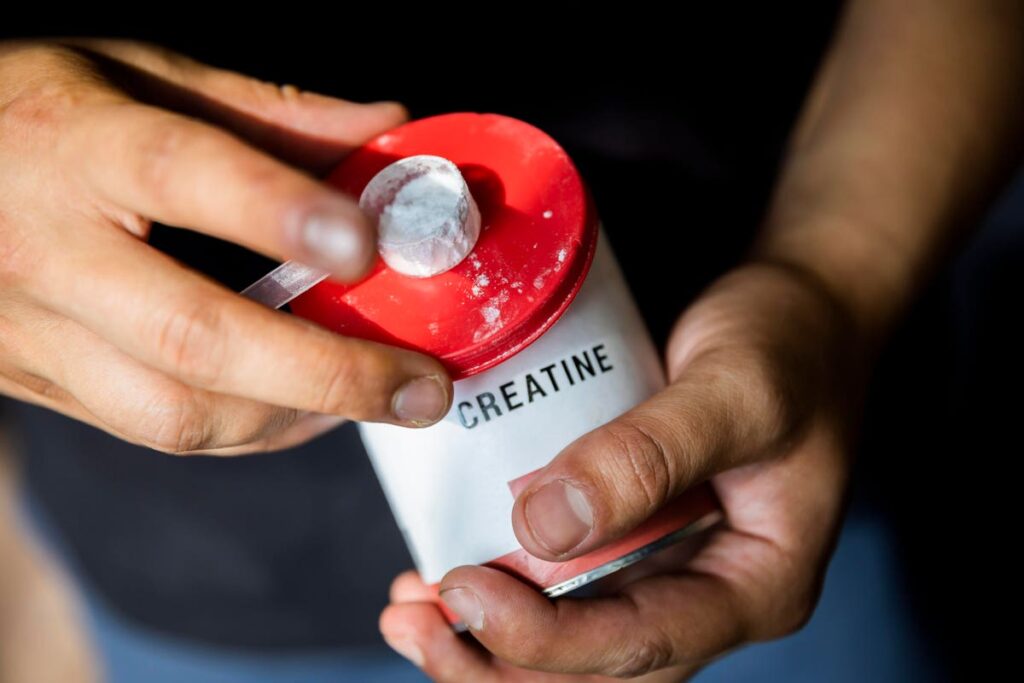FILED – 04 July 2023, Berlin: An American football player holds creatine at a gym in Berlin-Wedding. … [+]
Taking dietary creatine supplements for at least six months might help in reducing the severity of symptoms among patients with post Covid fatigue syndrome, according to a recent study published in the journal Food Science & Nutrition. The symptoms include difficulties concentrating, breathing problems, body aches, and headache and last for more than six months.
Previously known as chronic fatigue syndrome, post viral fatigue syndrome is characterized as a long-term neurological disorder. The condition can be debilitating and make it immensely difficult for individuals to carry out routine tasks. Multiple studies have found that post viral fatigue syndrome has been commonly reported after a Covid-19 infection. Around 45% of people who recovered from Covid-19 experienced post viral fatigue syndrome.
“Developing an effective and convenient intervention strategy to reduce post-Covid-19 fatigue syndrome thus becomes of utmost importance to bring down a high disease burden,” wrote lead author Sergej M. Ostojic from the University of Novi Sad, in Serbia, and colleagues in their study. “Among other candidates, dietary creatine has been recently put forward as a possible therapeutic in post-Covid-19 recovery having in mind its beneficial effects demonstrated during rehabilitation in various lung conditions.”
“Since post viral fatigue syndrome is often accompanied by various irregularities in creatine metabolism, replenishing creatine via dietary supplementation could be a safe and inexpensive method of nutritional care for post-Covid-19 fatigue syndrome,” the researchers added.
To investigate further Ostojic and team recruited 12 people in their study who were diagnosed with post-Covid fatigue syndrome. Their mean age was 31.7 years. They were divided into two groups of six. One took 4 grams of creatine monohydrate per day and half of them were women. The others were given a placebo. The researchers observed that three months and six months later, the group who took creatine supplements daily reported a significant drop in fatigue. After six months, the participants experienced improvements for other post Covid symptoms like loss of smell, difficulties breathing, and body aches and headache. The study participants did not experience any major side-effects after taking creatine supplements except for one who reported mild nausea.
“We found that creatine outcompetes placebo to improve brain and skeletal muscle creatine levels after the medium-term intervention,” the researchers observed. “Since post-viral fatigue syndrome is characterized by impaired tissue bioenergetics, supplemental creatine might be an effective dietary intervention to uphold brain creatine in post-Covid-19 fatigue syndrome.”
The researchers hypothesized that creatine supplements can help patients because after a Covid-19 infection, they could experience dysregulation of the blood–brain barrier which, in turn, might result in the brain absorbing more creatine to tackle any deficits in creatine levels. In the study, the team further noted that an increase in brain creatine was associated with improved brain performance. The study participants reported a 77.8% drop in their scores related to concentration difficulties.
In a press release Ostojic said: ““Endorsing creatine might be of great importance in tackling this prevalent condition, but additional studies are warranted to confirm our findings in various post-COVID-19 cohorts.”


